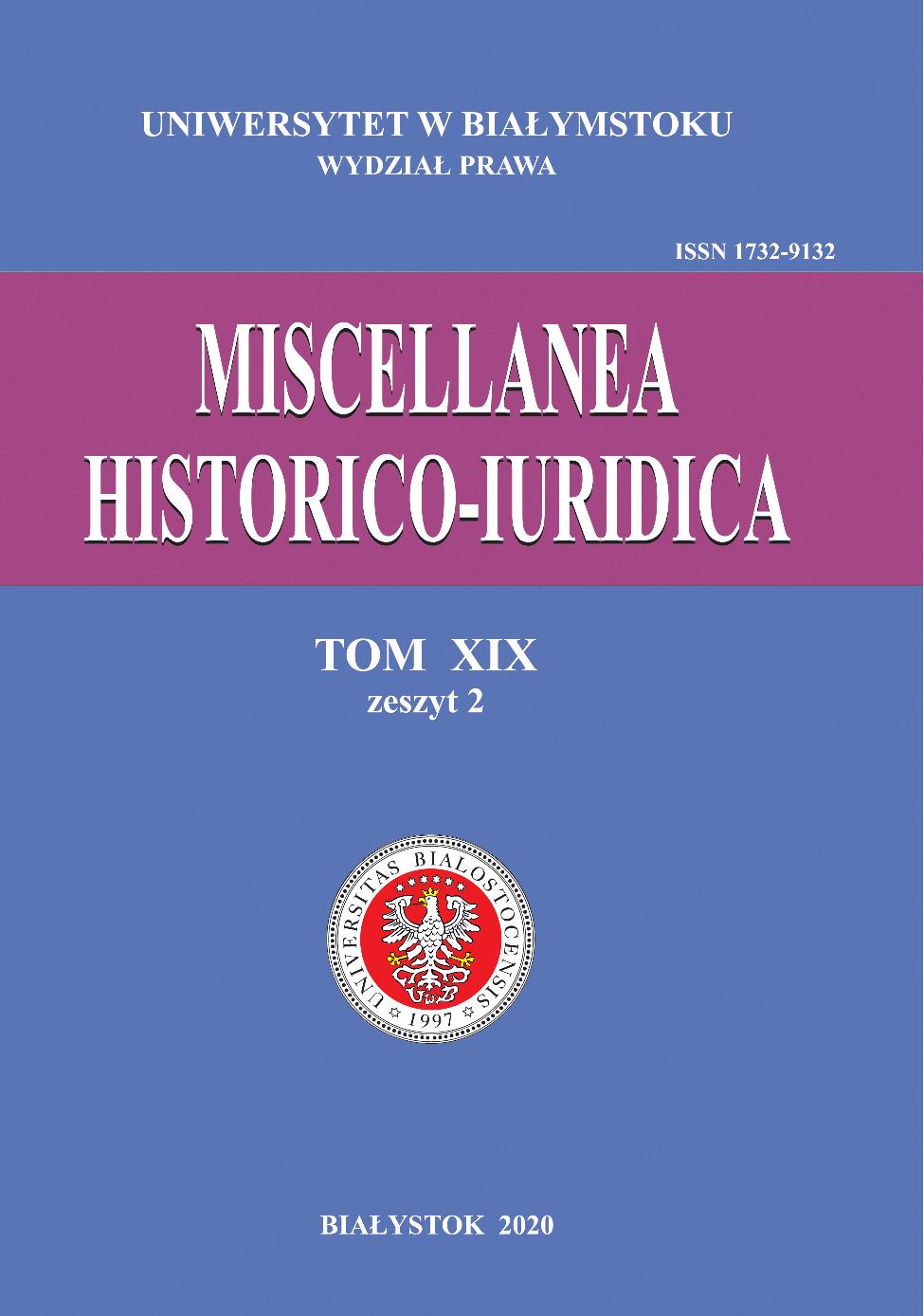The judgment of the Bundesgerichtshof (Federal Court of Justice) from the 4th September 1964 and the "New Citizenship Clause" as part of the German law of jurisdiction in criminal cases – a German-Polish case and its implications for the legal development
Keywords:
Federal Court of Justice, New Citizenship Clause, criminal cases, German-Polish caseAbstract
In its judgment of the 4th September 1964 the German Federal Court of Justice had to deal with a German-Polish case of murder. The accused persons were members of the German minority in Poland and lived in the Western part of Poland, when German troops occupied that territory in the autumn of 1939. Short after the invasion they killed the members of a Jewish family living in the same territory. Both, the perpetrators as well as the victims were Polish nationals, when the crime was committed. The perpetrators have got the German nationality in the following. It is not clear, whether they have been naturalized by German authorities during WW II, but if not, they were seen as German nationals with the Getting-into-Force of the German Basic Law (Constitution), because they were refugees from Poland to Germany. Therefore, Article 116 § 1 Basic Law naturalized them as German nationals. For the criminal case it was crucial whether the later naturalization can give the German Justice system jurisdiction over a case which happened before the perpetrator has reached the German nationality, as it was (and still is) stated in section 4 (resp. today section 7) of the German Criminal Code. The paper should deal with the implications of this so-called "New Citizenship Clause" and with the circumstances of the case and the following cases at Western German Courts against German people for committing murder in the occupied Polish territories during WWII. Shortly after the named case, the Auschwitz trial started in Frankfurt. On that background, the paper reflects on the situation between West and East Germany as well.
References
Dalcke A., Fuhrmann E., Strafrecht und Strafverfahren, Berlin 1961.
Geilke G., Die polnische Strafgesetzgebung seit 1944, Berlin 1955.
Geilke G., Staatsangehörigkeitsrecht von Polen, Berlin 1952.
Hegler A., Prinzipien des Internationalen Strafrechts, Berlin 1906, Nachdruck 2012.
Jeßberger F., Der transnationale Geltungsbereich des deutschen Strafrechts, Tübingen 2011.
Jescheck H.-H., Zur Reform der Vorschriften des StGB über das Internationale Strafrecht, „Internationales Recht und Diplomatie“ 1956, 75-95.
Jescheck H.-H., Weigend T., Strafrecht Allgemeiner Teil, 5. Auflage, Berlin 1996.
Lackner K., StGB mit Erläuterungen, 19. Auflage, München 1991.
Lackner K., Kühl K., Strafgesetzbuch, 29. Auflage, München 2018.
Leipziger Kommentar Reichs=Strafgesetzbuch, Band 1, 5. Auflage, Berlin und Leipzig 1933.
Leipziger Kommentar Strafgesetzbuch, Band 1, 10. Auflage, Berlin 1985.
Leipziger Kommentar Strafgesetzbuch, Band 1, 11. Auflage, Berlin 1992.
Leipziger Kommentar Strafgesetzbuch, Band 1, 13. Auflage, Berlin 2019.
Meyer H., Lehrbuch des Deutschen Strafrechts, 5.Auflage, Erlangen und Leipzig 1895.
Müller S., John T., Die Mörder sind unter uns: Der Ulmer Einsatzgruppenprozess 1958, Stuttgart 2008.
Riedel J., 50 Jahre Zentrale Stelle in Ludwigsburg. Ein Erfahrungsbericht über die letzten zweieinhalb Jahrzehnte, Vierteljahreshefte für Zeitgeschichte, 2008.
Rieß P., Entwicklungstendenzen in der deutschen Strafprozessgesetzgebung seit 1950, "Zeitschrift für Internationale Strafrechtsdogmatik" 2009, no. 10.
Sinn A., Jurisdiktionskonflikte bei grenzüberschreitender Kriminalität, Osnabrück 2012.
von Bar L., Gesetz und Schuld im Strafrecht: Fragen des deutschen Strafrechts und seiner Reform, Berlin 1906.
von Olshausen J.,Niethammer E., Kommentar zum StGB für das Deutsche Reich, Berlin 1927.
Werle G., Wandres T., Auschwitz vor Gericht, München 1995.
Zehetgruber C., Eine kritische Betrachtung der Anknüpfungspunkte des § 7 StGB, "Zeitschrift für Internationale Strafrechtsdogmatik" 2020, no. 7-8.







